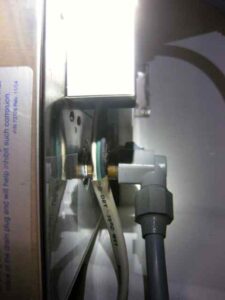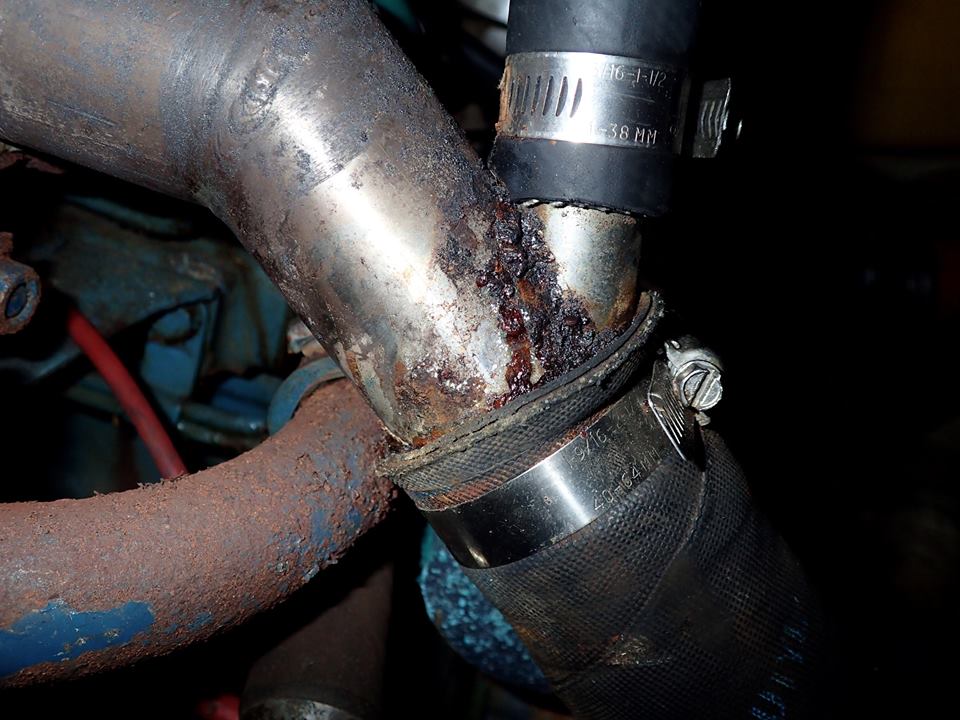Water Heater – Heat/Smoke/Fire
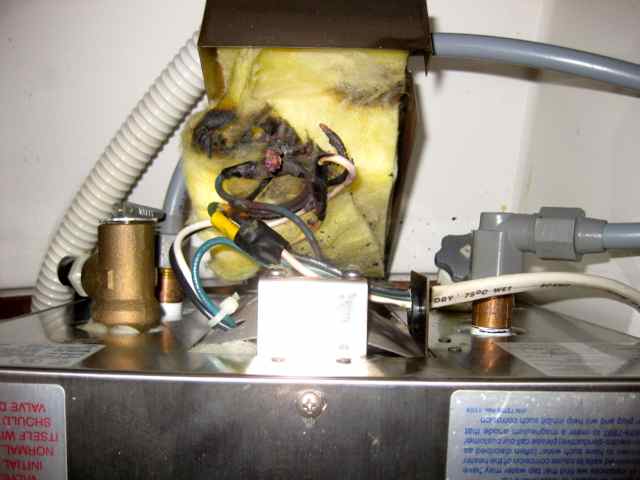
Last week I had the unfortunate experience of almost getting electrocuted. Really scary stuff!
I was inspecting a boat for a client and I turned on the water heater that was reported as newly installed. A few minutes after that, I started checking the AC electrical wiring for polarity and found that there was no ground wire connection in the boat. So I turned off the main circuit breaker for the AC system.
OK I thought, I’ll take a look at the water heater. But what I found or should I say smelled was a surprise.
When I removed the settee cushion and hatch over the heater a huge puff of acrid smoke and odor hit me hard. Electrical Fire! I immediately pulled back and found a fire extinguisher and went back to the water heater. The fire was out and there was just smoke now and that was clearing up but it had me coughing and the odor and smoke forced me out of the boat. I disconnected the shore power cord and brought it into the boat and hid it below the v-berth so no one would be a good neighbor on the dock and plug in the cord if it was on the dock disconnected. I also disconnected the water heater circuit breaker wiring and put a note on the main panel stating the danger.
The smoke and odor cleared and I went back in to see what the heck happened. It was obvious that whoever installed this new water heater didn’t know what they were doing and could of caused a large fire and / or killed someone. Knowing that I was safe, I leaned over, kneeling on the settee with one hand on the settee and the other on the water heater case. I opened the metal cover over the wire connections and was faced with several the problems.
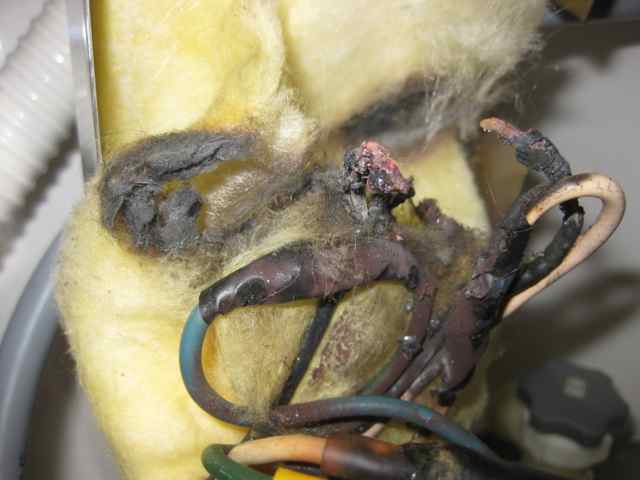
- The wires entering the water heater were not chafe or strain protected. In fact, they were lying directly against the brass plumbing and the water heater metal case.
- The wires that were laying on the case had bare wires that were either chafed or damaged when they were installed and the bare wires were shorting on the case. This effectively electrified the water heater case!
- The wires tucked inside the heater that were attached to the manufacturer pig-tail wires were not connected well.
And that’s about the time that it hit me. Had I kneeled over and touched the water heater case when it was connected to the electrical system I may have been electrocuted. I would have touched the metal water heater case that had electricity on it. The electricity would have attempted to find ground through me because there was no ground connected within the boat or shore power system – I would have been the ground wire!
Needless to say the experience was very sobering to me. I should have used my non-contact AC detector to touch the water heater case first to see if it was safe but I didn’t. I used to use my voltage detector on AC devices all of the time but I guess I was bit cavalier this time and I learned a lesson. Since then, I am back to carrying my detector in my shirt pocket and have gone back to my habit of testing everything AC first.
It’s so easy to use the detector, all you do is touch it to the case or device you want to test, on my detector if the light glows, there’s electricity and it’s not safe to touch.
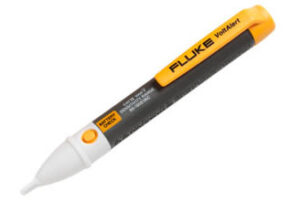 Do yourself a favor and get and use a non-contact AC electrical voltage detector. I have a Fluke detector and I like it because it detects low and high levels of AC electricity and it’s high quality. If you’re going to buy one, you should expect to pay $25-50. for a good detector. Probably don’t need to say it but that’s a low price to save your life!
Do yourself a favor and get and use a non-contact AC electrical voltage detector. I have a Fluke detector and I like it because it detects low and high levels of AC electricity and it’s high quality. If you’re going to buy one, you should expect to pay $25-50. for a good detector. Probably don’t need to say it but that’s a low price to save your life!


